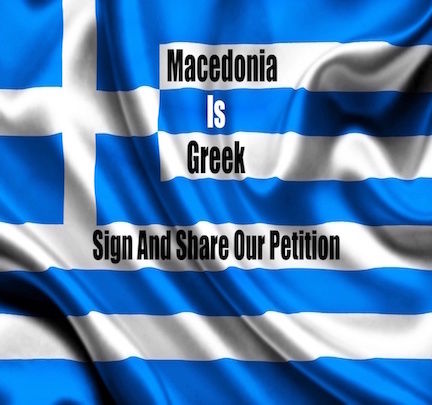The conflict over the name “Macedonia” is more than what appears at its surface. To most, it appears as merely childish bickering, old men and politicians droning on about the days of yore.
The fight of naming rights seems extraordinarily frivolous in this new age of a globalized world. In this new identity of citizen-of-the-world, we are beginning to understand the true meaning of “human,” rather than dividing ourselves into groups, sects, blocks, races, and fighting endlessly.
I can tirelessly explain with facts and data, history books and scrolls, how Hellenism, as we know it today, was only spread through Alexander the Great. I can suggest the degree to which Hellenism was influenced given that Mount Olympus is within the boarders of the Ancient Kingdom of Macedon, and that the teachings of Aristotle, and the legacy of Socrates, flourished through Macedonia. And that the Ancient Kingdom of Macedon only stretched a few miles out of what is present day Greece. This could be that article, explaining with history, science, coins and artifacts, but it won’t.
Not every piece explaining why this conflict is no frivolous matter has to be scientific. For myself and the men and women who come from Macedonia, as well as the rest of Greece, that name represents everything that was instilled in us from birth and all the goals the rest of the world wishes to achieve in this New Age. That name, Macedonia, means everything.
From that single name, we have been given the strength to strive for new heights and learn all that we can, from our families, books, poetry, songs, our past, but especially, from others around us.
From a young age, we are guided to think in new and innovative ways, to leave no stone unturned; we are raised to ponder the greatest mysteries of the universe and to understand ourselves as much more than a species, to understand the concept of self and what lies within.
We were lectured as children, not in any kind of religious morals, but simply morals. Be a good person, not because your sins might bring angels to tears, but instead, may bring one single person to tears.
We were taught to put family above all else, to place money last, and put good food and drink somewhere in between. Maybe some dancing as well. That name gives us the audacity to achieve the greatest of victories, whether it’s conquering the known world or feeding someone in need who’s come from a long journey in search of a new place to call home.
There is no hate where my ancestors come from—there is no prejudice. There is no greed and there is no disrespect to our Earth. The food isn’t called organic because there is no alternative. There is no homelessness because we have each other. We may argue and critique one another, but that is our birthright as Greeks.
The name Macedonia embodies every single one of these values. That’s what I am fighting for. These values are not just for ethnicity’s sake, but for the sake of bettering humanity. That is the essence of being Macedonian, now and in the days of old—to improve on what it means to be human: taking what we know and passing it on to others and in turn, learning from them.





















































